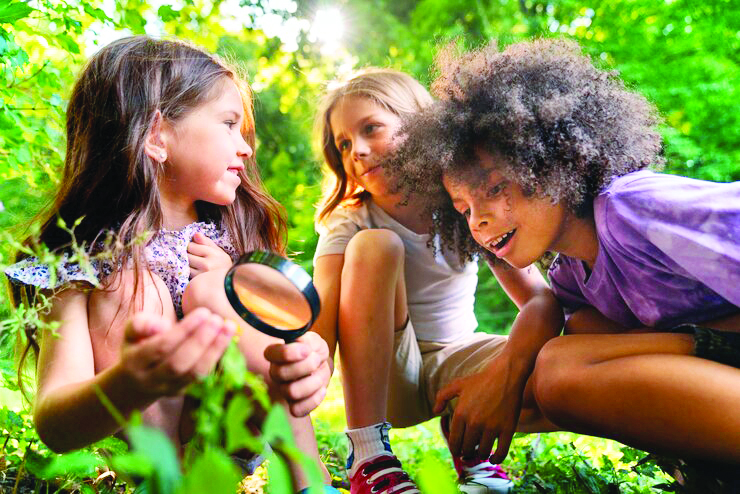FIELD TRIPS OF FUN, LEARNING & MEMORIES
Educational tours are more than just excursions. They transform students’ lives in many ways

The correspondent vividly remembers her first visit to a newsroom and printing press during her college years. Despite learning about the printing process in the classroom, nothing prepared her for the experience of witnessing newspapers being printed on large sheets of newsprint in real-time. Learning about the printing process in class was one thing, but seeing it in action made the lesson unforgettable.
Field trips are integral to the academic journey, regardless of the destination, whether it’s a factory, museum, library, or bank. They spark curiosity, passion, and offer firsthand experiences that deepen understanding. For kindergartners and school students, field trips are particularly beneficial. They promote experiential learning, provide a refreshing change from the classroom, and encourage hands-on exploration, nurturing a love for learning.
“Experiential learning activities, both inside the classroom environment, on campus, and on field trips provide students with real-world experiences to apply their knowledge and explore the world around them. From elementary school into the high school years, these experiences allow students to practically apply their knowledge while building skills and strengthening their character. Fostering these experiences for students that involve stepping outside of one’s comfort zone promotes collaboration, learning from mistakes, and understanding their subject areas in a real-world context,” said Dr Ted Mockrish, Head of School, Canadian International School, Bangalore.
Imagine a student, interested in botany, visiting the Indian Botanical Garden in Kolkata and getting a hands-on experience to learn about exotic trees, herbs and the Great Banyan Tree, which has stood tall for more than 250 years. The field education not only offers a unique learning environment to the students, but also provides them with the chance to interact with new people and behave differently. Excursions also encourage a sense of teamwork and community among the students as they experience a field trip together.
“Educational field trips are especially helpful since they deepen understanding of academic subjects beyond the confines of a conventional classroom environment. Going on an educational field trip enhances their critical thinking skills and gives them a chance to think about a topic or theme from a different perspective. Whether it’s a trip to a local grocery store, waterfront park, a library, a museum, a theater, a natural reserve, a community garden or a restaurant, each experience that a student participates in contributes to their understanding of the world. Students see how academic ideas are used in real-life scenarios by interacting with and seeing professionals in various fields, making their learning more meaningful and applicable. Children are also exposed to many cultures, viewpoints, traditions, communities and lifestyles, which encourages tolerance and an inclusive viewpoint and helps in improving their social and interactive skills,” said Niru Agarwal, trustee, Greenwood High International School.
Field trips aren’t just for school or college; they’re valuable for higher education too. University students benefit immensely from exploring various industries and organisations beyond the classroom. These experiences widen their horizons and equip them with practical insights crucial to navigate the dynamic corporate landscape. By stepping into real-world settings, students gain a deeper understanding of management principles, thus promoting a well-rounded learning journey that prepares them for future challenges.
“Educational field trips in PGDM education promote hands-on learning by immersing students in real-world business environments, allowing them to apply academic concepts in practical settings. For instance, visiting a manufacturing plant in operations management courses enables students to observe production processes first hand and understand concepts like lean manufacturing and quality control. In marketing courses, field trips to advertising agencies, and retail stores in malls, offer opportunities to witness marketing campaigns being developed and executed, reinforcing classroom learning on branding, retailing, and consumer behaviour. Human resource management field trips to workplaces facilitate learning about organisational dynamics and employee management practices. Additionally, field trips in business strategy courses expose students to different business models and competitive landscapes, fostering strategic thinking and decision-making skills. These experiences bridge the gap between theory and practice, fostering a deeper understanding of academic concepts and preparing students for the complexities of the business world,” said Dr Daneswar Sharma, Dean-Students Affair, Jaipuria Institute of Management, Jaipur.



